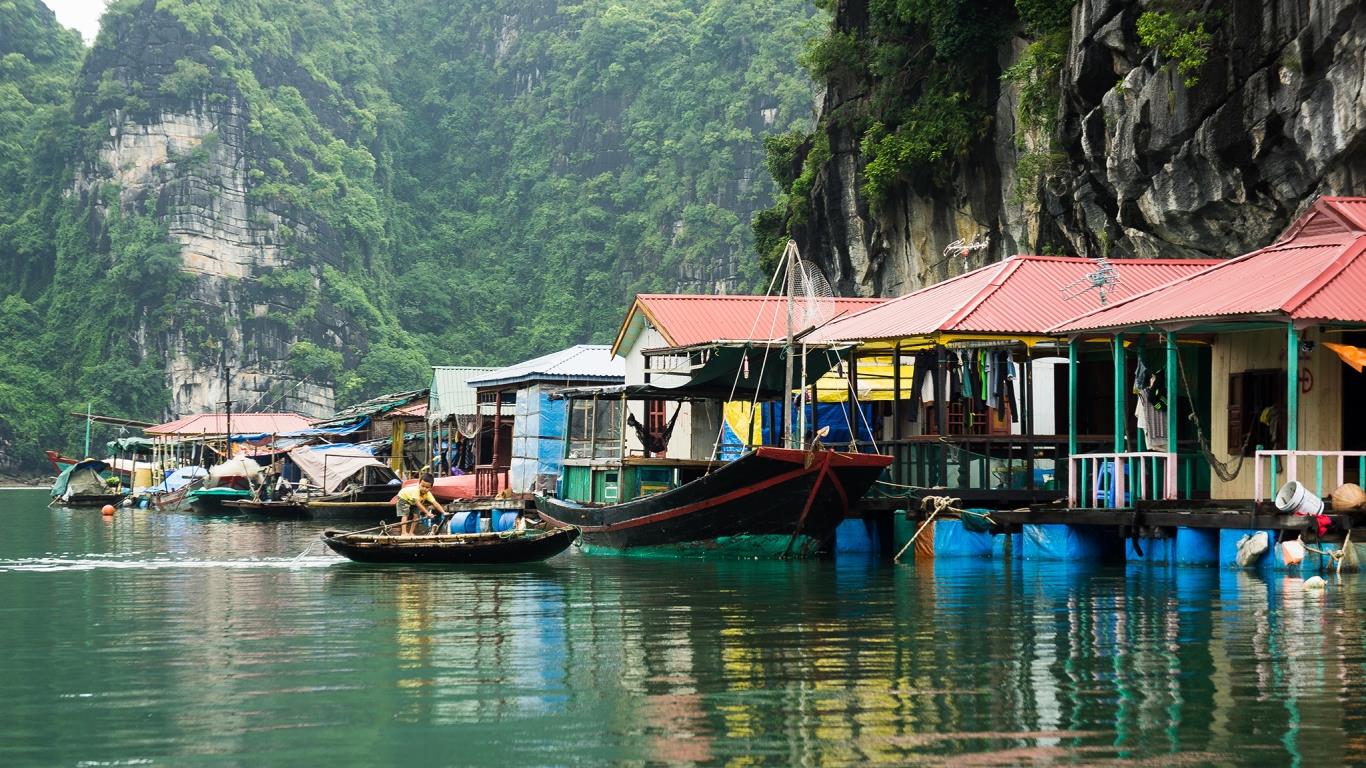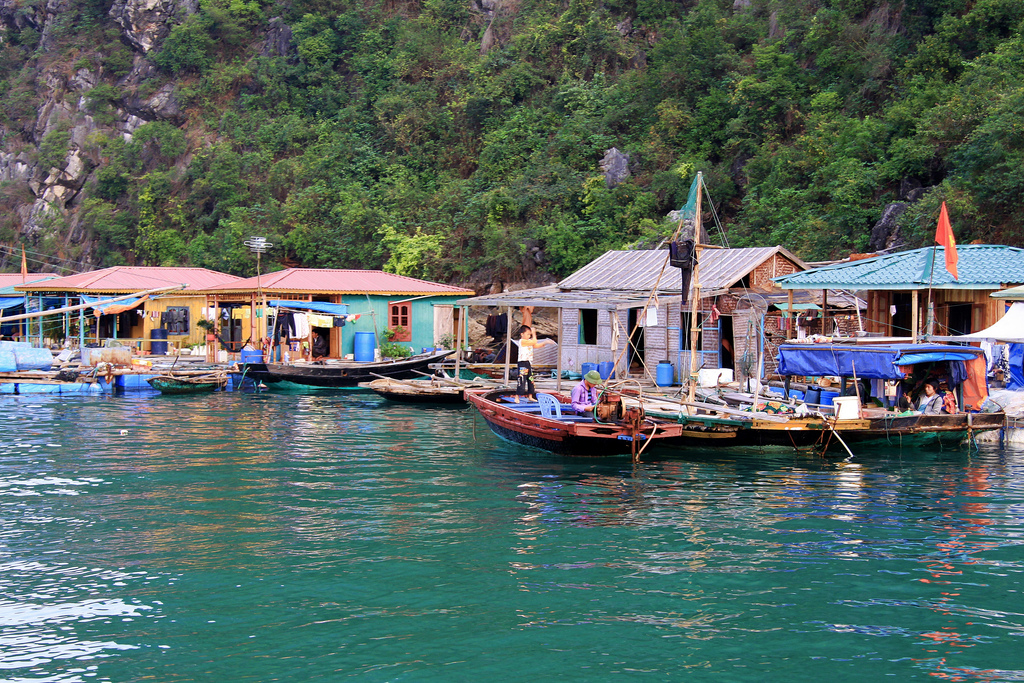
Vietnam has come a long way over the past few decades, averaging over 7% annual GDP growth throughout the 1990s. The country remains one of Asia’s more promising markets as it opens to foreign investment – and Vietnam property is arguably the best way to gain from their economic rise.
One area which Vietnam has become competitive in is manufacturing. This is especially true since China has become less popular for international firms. Businesses now prefer setting up shop in Southeast Asia.
This is probably caused by rising costs, more regulations, weaker growth, and a strong “home-bias” in the Chinese market. But whatever the case may be, East Asia is experiencing a downturn and Southeast Asia is on the rise.
As such, many investors are looking toward Vietnam – Southeast Asia’s third most populous nation and one of the fastest growing ones in the region. But foreigners have, at least up until recently, had few options when investing in Vietnam.
This is quickly changing. During the summer of 2015, the Vietnamese government relaxed property ownership rules for foreign investors.
Anyone with either a 3-month tourist or residence visa may now own land on a renewable, 50-year lease. Foreign companies have even less restrictions when buying property. It’s not quite as easy as that and there are other rules (which are discussed further below) to consider.
However, there’s no doubt Vietnam is going in the right direction. Places like Cambodia and Malaysia still make it easier to buy real estate as a foreigner. But with that said, the government has made clear which way they’re moving toward by gradually lifting restrictions on both foreign ownership of companies and properties.
Until things are made easy for investors, there’s still a few ways to get your feet wet and begin investing in Vietnam property. It’s bureaucratic – but once you’ve figured everything out, it’s possible to (at least de-facto) own both apartments and houses in Vietnam.
 Ho Chi Minh City, often referred to as Saigon by the locals, is Vietnam’s largest city and one of Asia’s fastest-growing.
Ho Chi Minh City, often referred to as Saigon by the locals, is Vietnam’s largest city and one of Asia’s fastest-growing.
There are a few reasons to invest in Vietnam now rather than waiting until it’s easy – apart from the fact that the barriers to entry are keeping prices low at the moment.
First off, demographics are in Vietnam’s favor. While nearby countries such China and Thailand are about to suffer from population decline, Vietnam is expected to grow from its current population of around 95 million today to almost 120 million by 2040.
Because of this, property prices in the center of all major cities should be driven up by urbanization.
Second, Vietnam is one of the fastest growing countries in the world. Its economy expanded by over 6% in 2016 – and even from there, the current trends are pointing upward as the government makes things easier for businesses.
Pioneers reap the greatest rewards. Vietnam is not easy or straightforward to invest in, but that’s not necessarily a bad thing.
Can Foreigners Invest in Vietnam Real Estate?
In a word, yes. But it’s more complicated than that. Vietnam’s foreign property ownership laws limit the number of foreign owners there can be in any particular neighborhood. Also, freehold ownership of land is not permitted.
For starters, land may only be leased in Vietnam. Whether you’re a local or a foreigner, all plots are collectively owned by the state and can only be leased on a 50 year basis. It’s possible to own houses and structures. Just not the land which they are built on.
With that said, there’s an option to extend these leases once they expire. Not many people expect the government to decline those who wish to renew – if anything, real estate ownership should be easier in 50 years.
The other two restrictions are that foreign buyers may only own up to 30% of units in a single condominium building. Furthermore, only up to 250 houses in any one administrative ward may be owned by foreigners. Neither of these limits apply to overseas Vietnamese.
Obviously, these two rules are more of a concern in dense cities such as Hanoi and Saigon than out in the country.
These current laws are relatively new and there used to be more restrictions. Until foreign ownership was liberalized back in July of 2015, you needed to have a residence visa before buying property.
I mention this not to dwell on the past but to show the positive direction Vietnam is, slowly but surely, moving toward.
How Much Are Property Taxes in Vietnam?
When transferring real estate in Vietnam, fees are payable by the buyer. There’s a 5% VAT (Value Added Tax) in addition to a registration fee worth 0.05% of the property’s value.
If any profit is made, there’s also a small capital gains tax of 0.15% on that amount.
Rental income is paid at Vietnam’s normal flat income tax rate of 20%. However, if you ask local landlords, you’ll find that few people ever bother to pay it and are left alone.
Technically, there’s also a land tax paid at 0.03% to 0.15% of its value with the exact rate depending on the land’s size. But this tax is also rarely paid by anyone in practice.
Is Buying Property in Vietnam Safe?
Vietnam has a well-documented land registry and the government keeps good track of plots in all major cities. So unless you’re buying land in a very rural area, you’re unlikely to have any problems on that end.
Any issues when buying property in Vietnam will come from the sellers rather than the government. Just like most other countries in Southeast Asia, it’s worth looking into the reputation of any developer you buy from.
There are some well-established companies with lots of projects to show. But if you buy from a small firm with few (if any) complete developments, you have a larger risk of construction either not moving ahead on schedule… or stopping altogether in the worst case.
For those buying from a reseller rather than a developer, it’s just as important to have an inspection done instead. Sellers have been known to hide structural issues and other problems such as water damage. Make sure you know what you’re getting into.
Places to Invest in Vietnam
Vietnam is the third most populous country in Southeast Asia with over 95 million people. Despite regulations, this means foreign buyers are able to consider towns, cities, and neighborhoods of all different sizes and flavors.
Many investors choose property in Ho Chi Minh City (Saigon) or Hanoi. Most of the rest choose beachfront cities and resorts such as Nha Trang or Da Nang.
Foreigners can often buy in smaller, less populous areas – at least in some form. But Vietnam has dozens of cities with at least a few hundred thousand people living in them.
As such, we’ll focus on the larger cities and resort areas for the purposes of this guide.
Source: www.investasian.com





